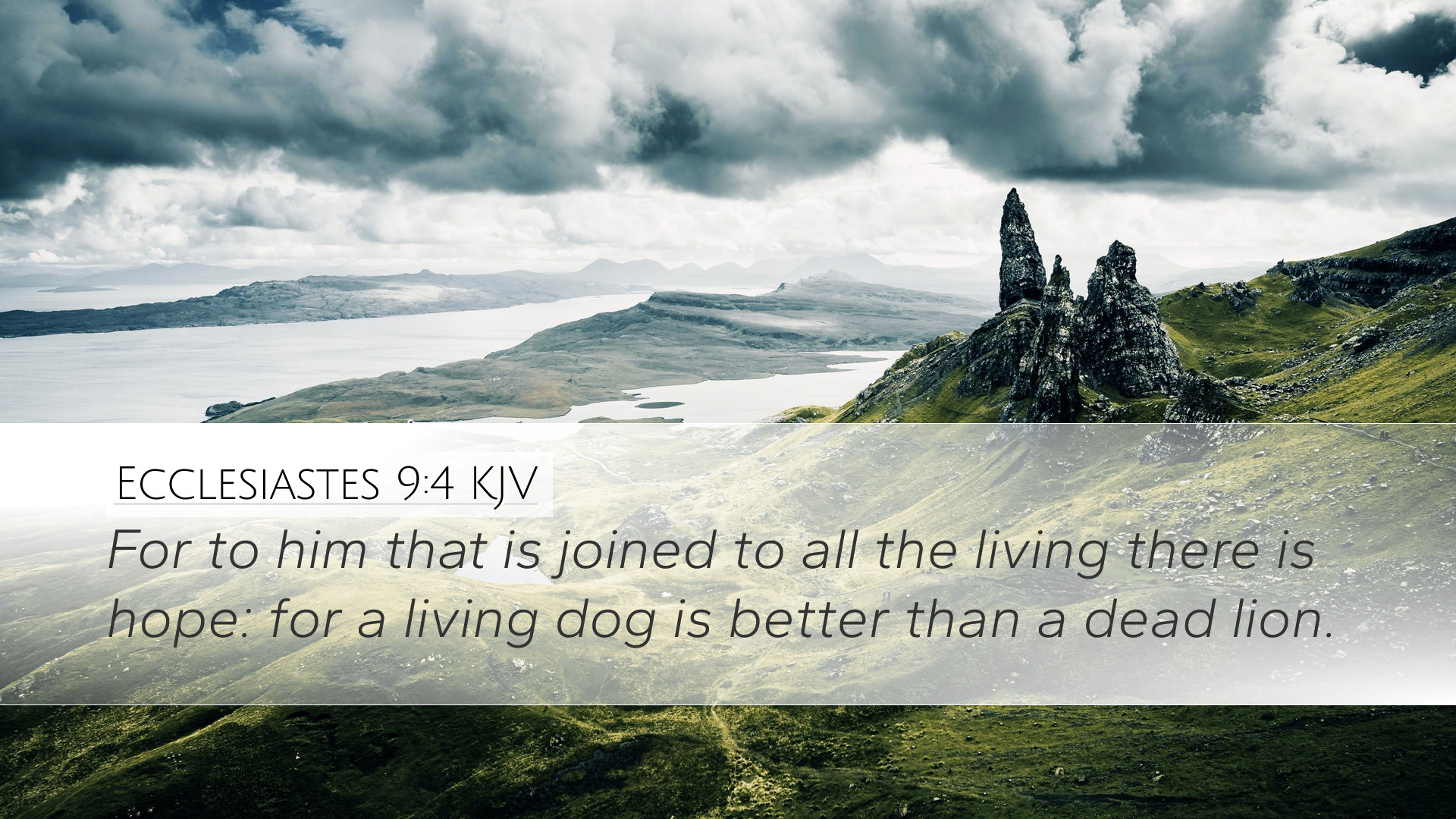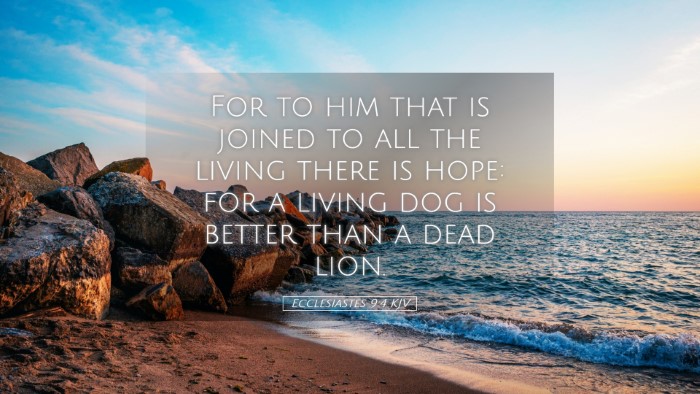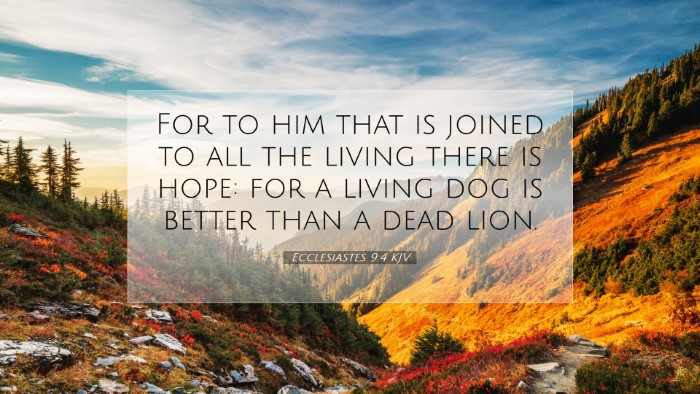Ecclesiastes 9:4 - Commentary and Insights
Verse Text: "For to him that is joined to all the living there is hope: for a living dog is better than a dead lion."
Introduction
The book of Ecclesiastes presents a profound exploration of life’s meaning and the inevitability of death. In Ecclesiastes 9:4, the author highlights a critical theme—hope in the midst of life's fleeting nature. This commentary aims to distill insights from respected public domain commentators such as Matthew Henry, Albert Barnes, and Adam Clarke, to provide a comprehensive understanding of this poignant verse.
Understanding the Context
In the preceding chapters, the Preacher (often identified as Solomon) reflects on the vanity of earthly pursuits and the certainty of death. Chapter 9 particularly shifts focus to the living, emphasizing the value of life itself despite its transience.
Theological Implications
This verse encapsulates the hope found in life. The stark contrast between the “living dog” and the “dead lion” serves to emphasize that, irrespective of the status associated with a lion—symbolizing strength and nobility—life holds a more substantial value.
Verse Analysis
“For to him that is joined to all the living there is hope”
Matthew Henry emphasizes that the living possess something invaluable: hope. This hope is not merely optimistic thinking but an expectation rooted in the belief that God’s purposes can be pursued and fulfilled. It reflects the assurance in God’s providential care amidst life’s uncertainties.
“For a living dog is better than a dead lion”
Albert Barnes offers insight into the symbolic meanings within this phrase. In ancient Near Eastern culture, dogs were often viewed negatively, indicating contempt or low status, while lions symbolize majesty and power. The comparison here serves to invert worldly values—a reminder that being alive, even in a state of apparent insignificance, far exceeds the glory of the dead, regardless of one's former greatness.
Practical Applications
- Value of Life: This verse challenges believers to appreciate the gift of life and the opportunities it presents, regardless of social standing or perceived importance.
- Hope in Adversity: It reminds us that hope persists even in the lowest conditions; a life dedicated to God has purpose and value, even if the world overlooks it.
- Prioritizing Eternal Over Temporal: The contrast between the living and the dead urges reflection on eternal truths versus temporal success.
Scholarly Reflections
Adam Clarke reflects on the conditions of life and death, asserting that while there is a certain honor associated with a lion, the vitality of being alive holds greater promise. The yearning for meaning in life resonates deeply versus the finality of death, which renders all earthly achievements void.
The Hope of Resurrection
Beyond the immediate interpretation, Clarke suggests that believers should also reflect on the eschatological implications in their reading. The concept of hope might be further extended to the hope of resurrection and eternal life through Christ, an assurance that even in death, life continues in a different, victorious form.
Concluding Thoughts
Ecclesiastes 9:4 invites reflection not only on the nature of life and death but on the inherent value of existence itself. The assurance of hope, particularly during challenging times, fosters resilience among believers. It reminds scholars, pastors, and students of the intrinsic worth found in daily living, urging them to find joy and purpose in God-given life.
References from Commentators
- Matthew Henry: Commentary on the Whole Bible
- Albert Barnes: Notes on the Old Testament
- Adam Clarke: Clarke’s Commentary on the Bible


